
Are modern humans still evolving? What will we look like in a million years? Will our descendants be cyborgs with hi-tech machine implants, regrowable limbs and big alien eyes like something out of a science fiction novel?
Might humans morph into a hybrid species of biological and artificial beings? Or could we become smaller or taller, thinner or fatter, or even with different facial features and skin colour?
To answer these interesting questions about the future of our evolution, let’s scoot back a million years to see what humans looked like then. For a start, we, the Homo sapiens, didn’t exist. A million years ago, we probably weren’t alone and there were a few different species of humans around.
There was Homo erectus (the name comes from the fact that they walked on two feet like us ). Homo heidelbergensis, who shared similarities with both Homo erectus and modern humans, and Neanderthals.

Realistic prehistoric early man Neanderthal reproduction in Trento Museum of Natural History, Italy
Apart from these, there may well be many more extinct human-like species that we don’t know about yet. But they all became extinct by natural selection and in the end, we remained as the only species.
Well, let’s take a break and understand what natural selection is.
Natural Selection
In 1859, Charles Darwin published his most important work on evolution — On the Origin of Species.
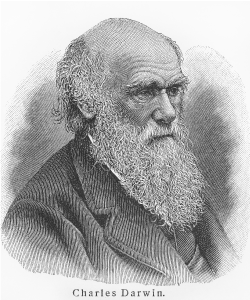
In this book, Darwin described the concept of natural selection. Natural selection is the process where organisms that are best suited to their environment survive and pass on their genetic traits to successive generations. At the same time, organisms that are less adapted fail to survive or multiply at a lower rate and tend to be eliminated from the ecosystem.
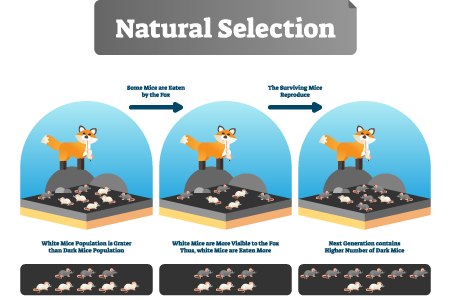
Evolution Is Not The Same As Natural Selection
Evolution is often used interchangeably with the phrases ‘survival of the fittest’ or ‘natural selection’. Actually, these are not quite the same thing.
‘Evolution’ simply means the gradual change of a population over time.
‘Natural selection’ is a mechanism by which evolution can occur. Our Stone Age ancestors who were faster runners avoided being trampled by mammoths and were more likely to have children. That is ‘natural selection’.
Over time, the human population became faster at running. That’s evolution.
Have We Changed At All?
During the last 10,000 years, there have been many changes for humans to adapt to. Agricultural living and plentiful food have led to various small changes in humans.
Let’s take a look at some of these interesting changes.
The Milk Revolution

Around 11,000 years ago, adult humans were unable to digest lactose — the sugar in milk.
As humans in some regions began to rely on dairy farming as a source of nourishment, our bodies adjusted over time to be more able to digest this food, which, previously, was only consumed by infants and toddlers.
We can see evidence of this evolution today because humans in areas with a long tradition of dairy farming such as Europe are much more tolerant of lactose. While people in regions that do not have a heritage of dairy farming — such as Asia are lactose intolerant.
Why Are The Dutch So Tall?

Did you know that Dutch men are the tallest people on Earth, with an average height of 5 feet 11.86 inches? But the Dutch were not always the tallest people on Earth.
Researchers in 2015 observed that in the mid-18th century, the average height of Dutch soldier was 5 feet 4 inches. This height was was well below the average height of soldiers from other European countries and tiny compared with American soldiers.
But Dutch men have experienced a relatively sudden growth spurt, adding an extra 7.87 inches to their average height over the past 150 years.
But why? The authors concluded that it was natural selection that was driving up the height of the Dutch.
In simple words, Dutch women were more likely to find tall men attractive and were, therefore, more likely to have children with them. Tall Dutch men, the study confirmed, have more children than shorter Dutch men.
In combination, these preferences exert a powerful natural selection effect on the average height of people in the Netherlands.
So What Would Humans Look Like In A Million Years?
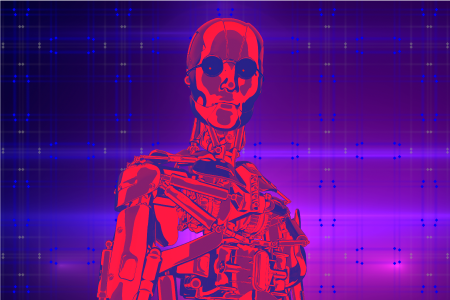
As our environment is always changing, evolution is always happening. And even if our environment was ‘just right’ for us, we would evolve anyway!
In a million years, we could evolve to be smaller so our bodies would need less energy which would be handy on a highly-populated planet.
Living alongside lots of people is a new condition humans have to adapt to. Back when we were hunter-gatherers, there would’ve been a handful of interactions on a daily basis. But now we meet hundreds of people every day. Scientists suggest that perhaps remembering people’s names, for example, could become a much more important skill. We know what genes are involved in building the brain that’s good at remembering people’s names. Perhaps an implant in the brain would allow us to remember every person’s name!
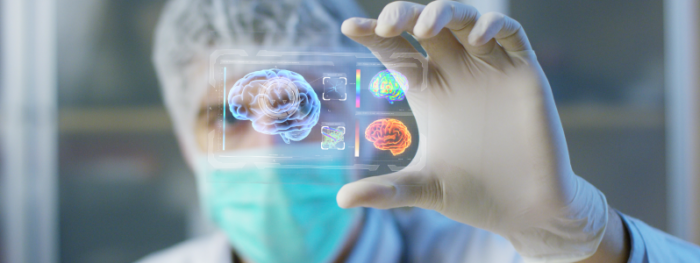
Have you heard of the term ‘designer babies’? Well, we already have the technology to change a baby’s genetic makeup to select or alter particular genes. Right now it is considered unethical because no one’s sure what happens next.
But in the future, it may be seen as unethical not to change certain genes. With that may come the choice to determine a baby’s features. So perhaps humans will look like what their parents want them to look like!
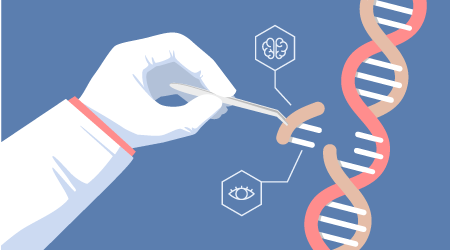
As we move even further into the future, the world’s rising temperatures and the accompanying deterioration in the protective ozone layer will play a major role. Added UV radiation reaching the planet may create a scenario where darker colour becomes an evolutionary advantage, as it protects against the UV damage. Increasing temperatures may also affect our size: instead of becoming smaller, we may actually have taller and thinner bodies that would be better at dissipating excess body heat, as it creates the best body surface area to volume ratio.
And what about space? If humans do end up colonising Mars, what would we evolve to look like? With lower gravity, the muscles of our bodies could change structure. Perhaps we will have longer arms and legs. In a colder, Ice-Age type climate, could we even become chubbier, with insulating body hair, like our Neanderthal relatives?
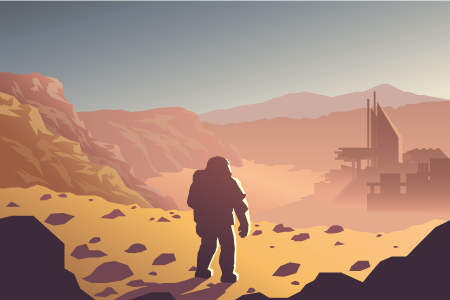
While this might not exactly be Marvel Cinematic Universe levels of genetic mutation — we are sad to report that we did not find any studies suggesting that the human race is about to acquire a telepathy gene or gain Superman-like strength!
But one thing is sure, that evolution is persistent, everywhere, and pushing our species forward in tiny increments.
What do you think what would future humans look like? Tell us in the comment section below
Enjoyed reading this? Check out other editions of the Evolution of Everything series only at the Learning Tree Blog.
The most important evolution of all : Lighting!
Tracking The Evolution Of The Television
The fascinating history behind the world’s most watched ball: The Football
Raza has been writing since 2008, be it fiction, poetry, or articles on science, politics, and history. He believes that words can change the world, and he uses them to inspire and empower people through his writing. When he is not working, he is watching nature documentaries or playing with his cats.
Comments
Vineet Singh
December 2, 2020
I can’t say what we look like in the future but I think that nature tries to make things better for everyone. Anyway I like to have physics power in future because we use our brain too much and it keeps developing. Nature can do everything.
Vineet Singh
December 2, 2020
I can’t say what we look like in the future but I think that nature tries to make things better for everyone.
Mohd Saad
November 5, 2020
Amazing! This gives us a lot of knowledge. I think humans will die as a natural selector and become extinct and robots will take over the world.
Prohan Mukhopadhyay
November 3, 2020
This is great!!! ???????
Shrija Ghorai
November 2, 2020
Simply mind blowing. Really speechless ?
PARITOSH
November 2, 2020
I give us too much information of our ancestors
Smity Nayak
November 2, 2020
This blog gave me the knowledge of our ancestors and how they were but the twist to know is all about the revolutions, which were really fun to read
Amogh Kottada
November 2, 2020
That is simply mind-blowing. I am really speechless.??